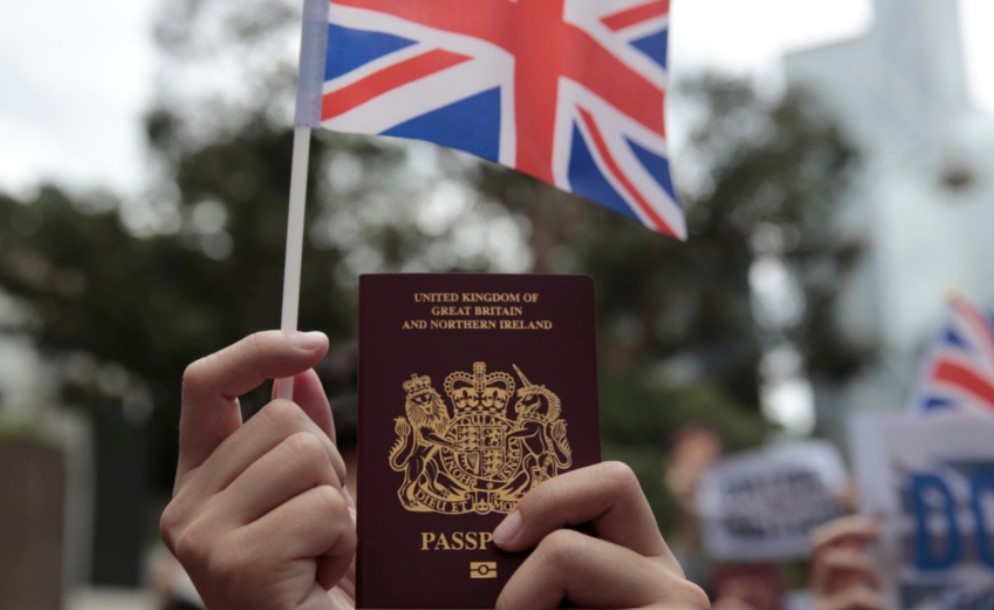Top 10 Best Saving Accounts And Rates In The UK for October 2022
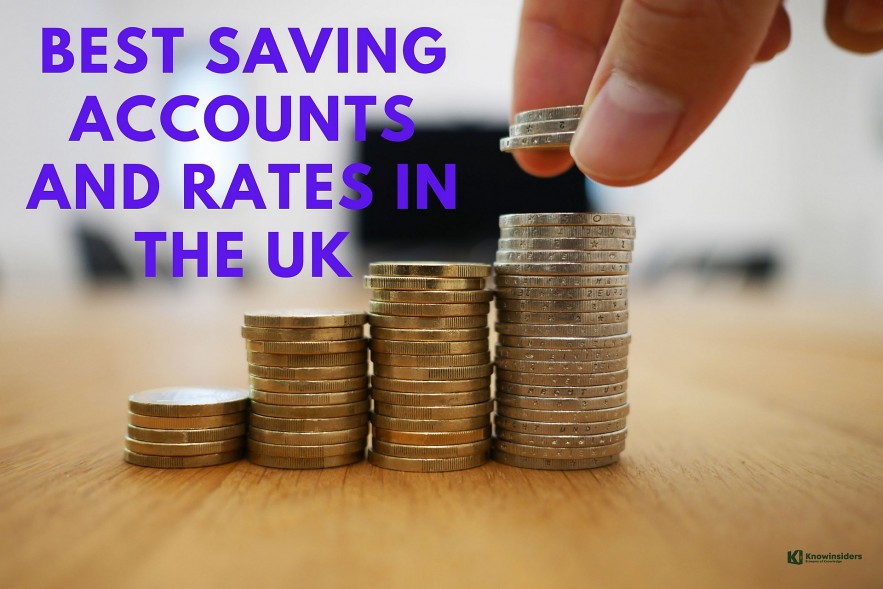 |
| Top 10 Best Saving Accounts And Rates In The UK for October 2022. Photo KnowInsiders |
High-interest accounts today can often pay better interest than savings accounts in many circumstances, although there are often limitations. This guide outlines what to consider if you’re looking for the best bank account interest rates.
Most high-interest accounts have stringent ongoing eligibility criteria; there is usually some kind of cap on the balance you can earn interest on; and there could be a monthly fee. On the plus side, you can earn a decent amount of interest and some accounts offer a range of additional ongoing benefits and rewards.
If you have, or are likely to have, an in-credit balance for a prolonged period of time, it’s worth looking into high-interest accounts. But do your homework first so that you can choose a high-interest account that best suits your financial situation.
Why should I care about the best savings account rates?
If you have money left in your checking account each month — or you can adjust your budget so that you do — you should have a savings account with a high rate. (Again, think around 2%.) It's always helpful to have money set aside for emergencies, and it'll earn you much more in an account that pays one of the best savings account rates than in a checking account.
Just make sure you can keep enough in your savings account to avoid monthly fees. Most online savings accounts don't charge these, but many traditional accounts do.
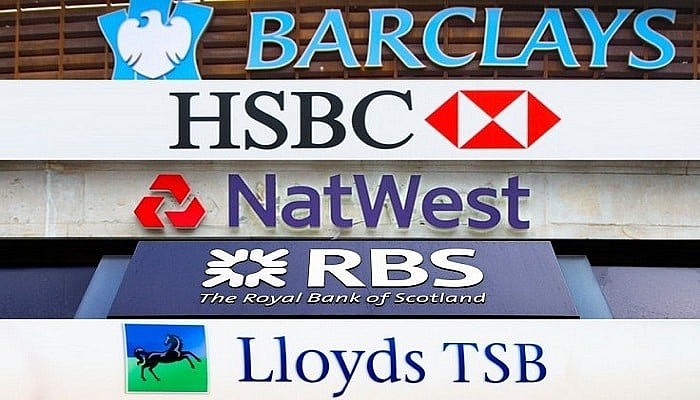 |
| Photo Global Brands |
Top 10 Best Saving Accounts And Rates In The UK for October 2022
| Provider | Interest rate at £1,000 | Min funding/month |
|---|---|---|
| Nationwide Building Society | 5% up to £1,500 in year one (0.25% after a year) | £1,000 |
| Virgin Money | 2.02% up to £1,000 | n/a |
| Santander | 1% up to £20,000 | £500 |
| Bank of Scotland | 0.6% | £1,000 |
| Lloyds Bank | 0.6% | £1,500 |
| Starling Bank | 0.05% | n/a |
| Chase | 5% on 'round-ups' | n/a |
Benefits of high-interest accounts
Although the conditions associated with running a high-interest account might seem onerous, in practical terms they are pretty straightforward and you will probably qualify without issue. Because of this, there is real competition amongst banks for your business, and most accounts also offer other benefits and perks to woo you.
Cashback
Cashback is usually capped at a total amount that you can earn per year, or is paid at a different percentage depending on the type of spend. There are usually conditions, such as a certain amount of direct debits must be paid from the account, or a minimum amount of spend or transactions must be undertaken with your debit card. Always check to see if these cashback offers are ongoing, or whether they have an end date.
Insurance
Many high-interest accounts with a monthly fee offer some form of insurance, typically including gadget or mobile insurance and travel insurance.
Travel-related benefits
These can include commission-free non-sterling cash withdrawals, or fee-free transactions when travelling abroad.
Preferential mortgage rates
If you are considering taking out a mortgage, or switching your mortgage provider, this could be a clincher – though always compare mortgage products across the board to ensure you’re getting the best deal.
Linked financial products
Some high-interest savings accounts only become available if you already hold a current account with a particular provider.
| How do I find bank accounts with high interest rates? When looking for the best current account interest rates, you can look around and use a current account comparison to find the provider offering the best rate. Before you apply, make sure that you meet the eligibility criteria and keep note of any upper limit that applies to the balance you can earn interest on. If the account offers a promotional period, remember to note down when the interest rate will drop. |
| Will I receive the advertised interest rate on my entire balance? Every high-interest account is different, but many stipulate a maximum balance amount that they will pay interest on, and furthermore, many account providers only offer the advertised rate for a specified period (typically one year). It is always advisable to carefully read the terms and conditions of your chosen bank account, and be ready to switch to an account with a better rate once the preferential rate has ended. |
| Do bank accounts that pay interest charge fees? It depends. Some banks do charge a fee for a high-interest account. If there is a fee, you need to make sure that the interest rate you are being offered on your balance is high enough to mitigate the fee. |
Top best online banks in the UK
Best for everyday accounts – Starling Bank
When it comes to all-rounders, they don’t come much better than Starling Bank. The challenger brand gives users access to a full UK current account that you can manage directly from the app. It takes only a matter of minutes to get started, and there are plenty of features for just about everyone. Unlike the majority of the other best digital banks, you get interest paid on your balance, as well as access to an overdraft.
If you’re looking for an account you can use as your main current account, you can’t go far wrong with Starling. However, some of the more advanced features, such as mortgages and more complex forms of lending, aren’t available yet.
Best for international payments – Revolut
Revolut is one of the fastest-growing digital banks in the UK, and for good reason. The feature-laden account gives you access to all kinds of benefits. Perhaps most notable is the fact you can top up your card in several currencies. So, if you’re travelling overseas a lot, you can reduce your fees overall. What’s more, with the premium features, you can get free travel insurance. You can also hold your cryptocurrency balance in your Revolut account.
As with Wise, there are no options for paying cash into your account. And, if you want access to the best features, you’re going to have to pay a monthly fee. So, depending on how much you use it, there are no guarantees you’ll be better off.
Best for multicurrency transfers – Wise
With the Wise borderless account, you get low-cost money transfers that are, according to the company, up to eight times cheaper than regular banks. You can also hold your funds in over 40 different currencies. So, if you’re the type of person who tends to make a lot of transfers overseas, this could be the account for you.
Similarly, you can receive payment in GBP, USD, EUR, and AUD without paying any fees. You can also get account details for each of these currencies. Of course, it’s not a flawless system. For those who make regular large payments, you could be better off using a speciality service. Similarly, if you make a lot of cash payments into your account, you should look elsewhere.
Best for effective budgeting – Monzo
Monzo is practically an established name in the digital bank world these days. The company has spent time developing a broad range of features to help you manage your money better. You can set budgets, create savings pots, and keep money aside for bills. If you’re looking to save money, this is the bank for you. You’ll also get access to things like free overseas cash withdrawals (up to £200 per month) as well as no transaction fees on overseas spending.
Monzo has gradually added other features such as overdrafts, loans, and joint accounts, making it a viable choice as a main account. However, there are some limits and fees associated with the account. You can only deposit a maximum of £1000 cash every six months, and it costs £1 per deposit using PayPoint.
Best for overseas students – Monese
Whether you’re a student from overseas studying in the UK or a local student heading abroad, Monese is a good choice of bank. Students get access to a free Classic account for 12 months, and you won’t need proof of address of a credit history check to open an address. Once you have the app, you’ll get real-time notifications and a balance graph of your spending.
Unlike many of the accounts on here, you can deposit cash directly into your account using the Post Office of PayPoint, and can hold both a UK and Eurozone account. However, once your free 12 months is up, you’ll have to pay a monthly fee. Similarly, there are costs for withdrawals over a certain threshold, as well as foreign currency exchanges.
Best all-round – Chase
Chase offers an extra layer of security, in that you're banking with a contemporary digital challenger but one that's been launched by JPMorgan, one of the largest and most secure banks in the US. So if you have concerns about the safety of your funds with a bank that you're not as familiar with, Chase can put a lot of those to rest.
Honourable mention – Virgin Money
Last on our list is Virgin Money, with an honourable mention. The free, app-based account has some great features, making it a good all-rounder. With the current account, you get 2.02% AER (2.00% gross per annum variable) on up to £1,000, with interest paid monthly. You also get a free savings account offering 0.50% AER (0.50% gross per annum variable) on your savings, with interest paid quarterly. It's free for everyone and takes just a few minutes to set up.
How to open a bank account in the UK
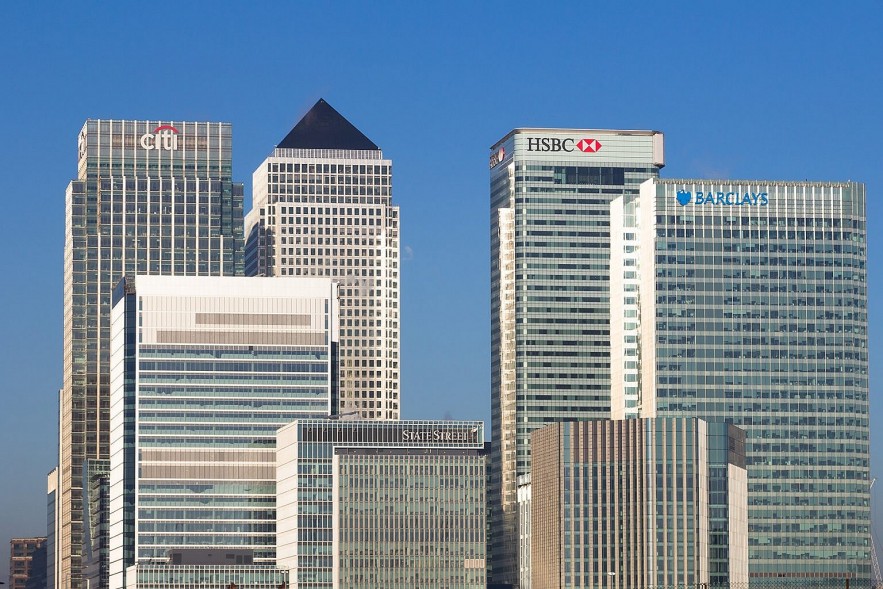 |
| Photo expatica |
To open a UK bank account, you will usually need a UK address (unless you are opening a non-resident account). Documents that you will need to provide vary from bank to bank, but are likely to include official ID and proof of address (utility bill or council tax bill). See more information in this Expatica guide to opening a bank account in the UK.
Payment methods in the UK
 |
| Photo expatica |
If you are new to the UK, getting to know payment methods is important.
Cash
Cash is still a popular method of payment in the UK. It has declined over the last ten years – from 63% to 34% of all payments – according to an Access To Cash review. Most people in the UK still value using cash and it is the primary form of payment method for transactions such as paying taxi drivers, newsagents, and for transactions under £10.
Cheque
Cheques are still used as a payment method, mostly for larger payments, but have greatly declined in popularity over the last 10–15 years and now account for less than 1% of overall payments in the UK. You can still request a checkbook with many bank accounts. However, customers no longer receive one as a standard means of payment. Cheques in the UK take around four working days to clear.
Debit cards
Debit cards are a popular form of payment across all UK groups. A total of 98% of adults in the UK have a debit card and they are usually issued as standard with most bank accounts. Debit cards normally double up as cash cards to withdraw money from ATMs in the UK. The most popular debit cards in the UK are Visa, Visa Electron, and Mastercard. Debit cards can be used in most stores (some may charge a small fee of around £0.50 for transactions under £5) as well as for online payments. Many cards now can handle contactless payments up to £30. Debit cards are popular for online payments; 2018 statistics show that 52% of UK online payments were made by either debit or credit cards.
Credit cards
Credit cards are not as popular as debit cards in the UK, although there were still 60.1 million credit cards issued to UK residents as of January 2019 (compared to 98.6 million debit cards). The most popular types of credit cards are Visa and Mastercard, with many people also using American Express. You can apply for a credit card through your bank, direct from the provider, or from some other companies (Sainsbury’s, Virgin, and Marks & Spencers all issue credit cards). They can be used in stores and online in much the same way as debit cards, the difference being that you will pay off your overall credit card bill in installments (e.g., monthly or quarterly) rather than for each transaction at the point of sale.
Direct debits and standing orders
Direct debits and standing orders are popular ways of paying bills, such as utility bills or mobile phone bills, rent payments, and other fixed amounts. Both are easy to set up, the difference between them being that direct debits give permission to a company to charge regular (often fluctuating) amounts from your account, whereas standing orders are instructions to your bank to pay a fixed amount to a third party. You can find out more about direct debits on the Direct Debit website. All direct debits are backed by the Direct Debit Guarantee and can be canceled at any time.
Online and mobile payments
Mobile payments in the UK haven’t taken off to the same extent as in some other countries, with only around 13% of the population making mobile payments in 2018. Online payments using credit cards, debit cards, and PayPal are more popular.
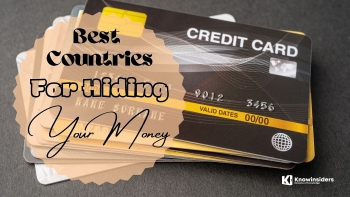 Top 5 Best Countries For Hiding Your Money Top 5 Best Countries For Hiding Your Money If you’re putting money in offshore bank accounts in order to save on taxes, keep on reading top 5 best countries for hiding money below. |
 Top 10 Best Saving Accounts and Rates in the U.S for October 2022 Top 10 Best Saving Accounts and Rates in the U.S for October 2022 Which bank in USA gives highest interest on saving accounts & rates. We ranked the top 10 US banks with the best savings account interest ... |
 Top 10 Best Saving Accounts and Rates in Canada Top 10 Best Saving Accounts and Rates in Canada Canada's banking system is famous worldwide for its safety. If you are thinking about sending your money into Canadian banks, don’t miss the list of ... |


